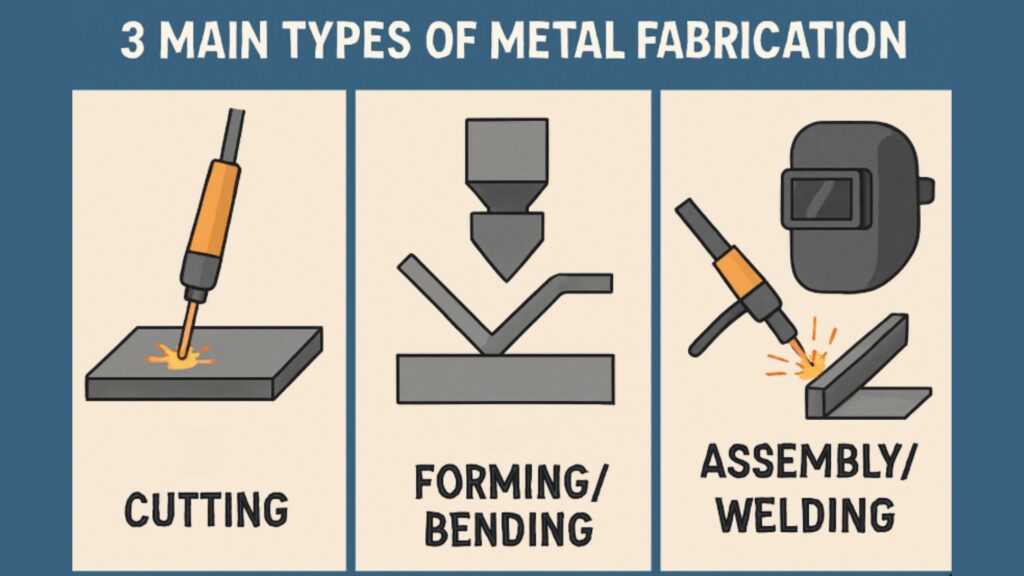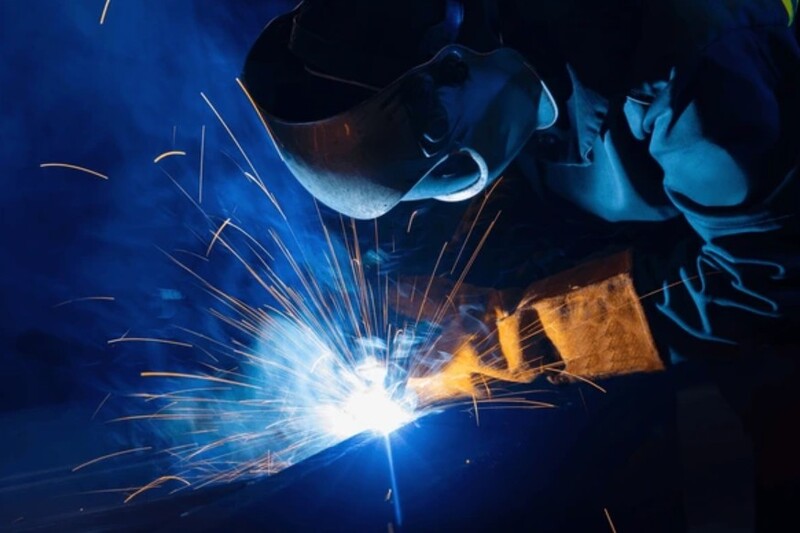What is Metal Fabrication? How It Works?
Ever wondered what is metal fabrication and why it matters in Singapore? From towering skyscrapers to precision parts in aerospace, metal fabrication is the hidden force that powers industries, combining advanced machines and skilled craftsmanship to turn raw materials into essential products.
What is Metal Fabrication?
Metal fabrication is the process of shaping raw metal into finished products through cutting, bending, and assembling. It uses techniques such as laser cutting, welding, and press braking to create parts or structures. In Singapore, metal fabrication is widely used in construction, aerospace, marine, and electronics industries.
With Singapore’s high standards for quality and safety, fabrication companies play a vital role in supporting industries and infrastructure projects.
What Are the 3 Types of Metal Fabrication?
The 3 main types of metal fabrication are:
Cutting
This involves reducing raw material into specific shapes. Techniques include laser cutting, plasma cutting, water jet cutting, and CNC machining for high accuracy.
Forming/Bending
Through processes like press braking and rolling, metal sheets are bent into curves or angles without removing material.
Assembly & Welding
The final step involves joining parts together using welding (MIG, TIG, robotic welding), riveting, or bolting to produce complete components.

How Sheet Metal Fabrication Works
Sheet metal fabrication works by transforming flat metal sheets into functional products through a series of processes. It combines design, precision cutting, bending, welding, and finishing.
Step-by-Step Process:
- Design & Planning – Engineers create CAD drawings to define exact measurements and shapes.
- Material Selection – Metals like stainless steel, aluminium, and mild steel are chosen based on strength and durability.
- Cutting – Machines such as laser cutters, plasma cutters, or CNC tools shape the sheet into required parts.
- Bending & Forming – Press brakes and rollers bend or curve the sheet metal without breaking it.
- Assembly & Welding – Fabricators join pieces using welding, riveting, or fasteners.
- Surface Finishing – Processes like powder coating, galvanizing, or polishing protect the metal and improve appearance.
How to Charge for Metal Fabrication in Singapore
Metal fabrication costs vary depending on material, design, and production volume. Most companies in Singapore use one of these pricing models:
Hourly Rate Model
- Charges are based on labour and machine time.
- Rates usually range from SGD 80 – SGD 150 per hour, depending on the complexity of the job and equipment used.
- Common for custom, one-off projects or repair work.
Per Project / Quotation Model
- A fixed price is quoted after reviewing the CAD drawings and specifications.
- Costs may range from SGD 500 – SGD 5,000+ per project, depending on size, material, and finishing.
- Ideal for bulk production or clearly defined projects.
Per Unit Pricing
- Often used for mass production of parts.
- Unit prices drop as quantities increase.
- For example: a stainless steel bracket might cost SGD 20 per piece for 50 units, but only SGD 12 per piece for 500 units.
Material + Service Combination
- Some companies charge separately for raw materials and fabrication services.
- For example, mild steel plates may be billed at SGD 3.50 – SGD 5.00 per kg, while cutting, bending, and welding are added on top.
These prices are only examples based on common market practices. Actual costs may vary depending on material choice, design complexity, order size, and finishing requirements.
Why Choose a Singapore Metal Fabrication Company?
Choosing a local partner for metal fabrication offers many benefits beyond just convenience. Singapore-based fabricators understand local industry standards, regulations, and client expectations. This ensures higher quality, faster delivery, and smoother communication compared to overseas sourcing.
A trusted fabrication partner should provide:
- Proven Expertise – Years of experience across industries like construction, marine, and precision engineering.
- Advanced Technology – Use of CNC machines, laser cutting, and robotic welding for accuracy and efficiency.
- Quality Assurance – Compliance with certifications such as ISO and bizSAFE for safety and reliability.
- Transparent Pricing – Clear quotations with detailed breakdowns so clients know exactly what they are paying for.
- Customised Solutions – Tailored services to match unique project requirements, whether small-scale or large industrial jobs.
For businesses seeking a reliable partner, working with a Singapore fabrication specialist means confidence in quality, efficiency, and long-term support. Companies like The Monster Builder stand out by combining technology-driven processes with customer-focused service, helping clients achieve strong and precise results every time.
Conclusion
Metal fabrication is the backbone of Singapore’s industrial sector, enabling industries to build reliable, safe, and efficient products. By understanding the 3 types of fabrication, sheet metal processes, and pricing factors, businesses can confidently select the right fabrication partner.
A Singapore-based fabricator offers faster lead times, strict compliance, and long-term reliability. When choosing a partner, look for one with experience, certifications, transparent pricing, and advanced capabilities ensuring you get the best results for your project.



